- Home
- Jasinda Wilder
Anselm Page 2
Anselm Read online
Page 2
He was bleeding heavily from what looked—now that I actually noticed—like a nasty glancing gunshot wound to his hip. A black handgun lay on the table near the sewing kit, blood caked on the handle. He wore black jeans—he was twisted toward the table, and I saw the holster at the small of his back. His shirt was draped over his knee, soaked in blood.
He sat looking at me, his left hand gripping the handgun, now pointed directly at me. He had been sewing himself up with his right, and that hand was frozen with the needle halfway in his skin.
He stared at me, and I stared at him.
“Return to bed,” he murmured. “Forget I am here.”
I shook my head. “I am an emergency nurse, and a former combat medic.” I kept my hands at my sides, because the barrel of that pistol was unnerving. “Let me help.”
“No good for you.” He had an accent—German? Scandinavian? Russian? It was complicated, sounding almost neutrally, vaguely European, and impossible to pinpoint. “Best for you to forget you see me.”
“Too late.” I took a step forward. “I am here, and I see you. You are hurt, and you are in my home.”
His brown eyes were killer’s eyes; I have known enough killers, enough soldiers, to recognize it. He pulled back the hammer. “Miss. Please. I will be gone in a moment.” A pause. “I do not wish to bring my troubles to you.”
“You already have.” I ignored the gun, the drawn-back hammer. “My daughter is asleep in this house. I am not leaving this kitchen until you are gone.”
He withdrew the needle, and glanced down at it, trying to figure out how to disengage the thread without putting down the gun.
I shifted forward, moving slowly. “It will go faster for us both if you let me help you.”
“You have a daughter?”
I nodded, and now the space between us was mere inches—I knelt near his thighs and slowly, gently took the needle from his thick, rough, calloused fingers. “Yes. She is seven.”
“Husband?”
I shook my head. “No. I adopted her. There is no man in my life.” I smirked up at him. “So, no worries about an angry husband coming through the door.”
He snickered. “Good. I would not want to have to hurt anyone.”
I eyed him, adjusting my grip on the needle, using my other hand to pinch the jagged edges of the wound together. “You know this will not heal well?”
He narrowed his eyes and hardened his jaw as I pierced his skin with the needle. “Yes. I know.”
“You will have quite an ugly scar. The thread you will have to remove—this is not medical thread.”
“I know.”
I pulled the thread tight, and he breathed out hard through his nose—then sucked it in again as I slid the needle through him from the other direction. “Who are you?”
“No one.” He blinked, breathing deeply, slowly. “I am sorry to have chosen your home.”
His eyes fluttered over me—head to toe, several times. I was squatting between his knees, leaning forward, and the baggy, oversized shirt I was wearing gaped open, providing him with a look at the fact that I was bare underneath—not even any shorts or underwear or anything; I was not planning on company, clearly, and intended to take a shower before sleep.
More reason to get this man out of my home.
I focused on sewing him up—it was a lengthy process, as the wound was long, and deep enough to require stitches, running from hipbone up his side.
I focused, but I still felt his eyes. He attempted to keep himself from staring down my shirt, but the draw of my naked breasts visible through the gap was, I knew, too much to resist for long. And, if nothing else, it was a distraction. I did not entirely begrudge him that distraction, as he was enduring stitches without anesthetic, and was utterly silent except for an occasional hiss or sigh.
Perhaps it was his looks—if he had been ugly and out of shape, would I have minded? If I had not been attracted to him, would I have begrudged him the stares?
Perhaps, perhaps not. I do not know.
I just knew his eyes raked from my eyes to my lips, to my breasts, to his wound and my hands and the needle, and I felt his inner struggle to keep his eyes off of me.
Finally, I drew the last stitch through, created a loop and knotted the thread, once, twice, three times. And then cast my glance around for some way of cutting the thread.
He anticipated my needs, and reached down to his high combat boots, where he withdrew a black, double-bladed four-inch fixed-blade boot knife. He flipped the knife with dexterous ease, catching it by the tip and handing it to me. I deftly severed the thread, and mirrored his move—flipping the knife, catching the tip, and handing it to him. His surprise was palpable.
I stood up, adjusted my shirt, tugging the hem down. “There. You’re done.”
He replaced the boot knife, stood up, shoved his gun in the holster, and shrugged into his shirt—it was soaked in blood and going stiff. His movements were careful, but it was clear he was no stranger to pain.
He stood at the back door—I know it had been locked, but something about the man made it obvious that locked doors were no barrier. “I have been here less than fifteen minutes. I was hoping to have escaped your notice altogether. I do not want to draw the attention of my enemies to you.” A pause. “I’m sorry, but I think perhaps you should leave town with your daughter. That would be best—even for a short time.”
“Enemies? What enemies?” I shook my head, shrugged. “Anyway, I have nowhere to go.”
“Vacation?”
“Never mind a vacation. What do you mean when you say your enemies are looking for you? What kind of danger could I be in? Are you a fugitive?”
A nod. “I will simply say that I work for a private security company and sometimes the work is dangerous. Lately, certain people have become far too adept at tracking me. It is possible, remotely possible, that I will be the cause of trouble for you.”
“What kind of trouble?”
A sigh, his deep brown eyes meeting mine. “The kind a beautiful woman with a daughter should not have to know about.” He shook his head. “I regret my decision to come here. It was dark; there was no car in the driveway or garage. I thought the home was empty. I am sorry.”
“What is your name?”
He shook his head yet again. “You should not know.” He opened the back door. “Take your daughter. Visit New York, or LA. Go to swimming in the beaches of Florida. Go, please.”
I heard a note of pleading in his voice; saw something in his eyes that unnerved me. “I will consider it.”
It might be good to take Story and get away for a while, just to be safe, but I had no intention of telling him this. I was not in the habit of allowing perfect strangers to dictate my life. Instead, I pulled my medical bag from the closet and gave him some antibiotics and painkillers. “Here, you might need these.”
Taking the meds, he stared at me a moment longer, as if at war with some instinct in himself. “You are…so beautiful.”
I swallowed hard, blinking at him. “Thank you,” I murmured.
And then he was gone, vanishing silently into the shadows of my backyard.
I poured my wine, untouched, down the drain. Left my food in the microwave. Curled up on the bed next to Story, between her and the bedroom door.
When I slept, I dreamed of deep brown eyes, of big hard rough hands, of a quiet voice and thick muscles shifting under bronze skin, of a warrior enduring pain silently. Of those deep dark brown eyes on my skin.
I dreamed of things I should not have dreamed of—sinful things done in the dark, delighting in flesh and lips and hands and muscle and hardness and softness, things enjoyed for more than the mere physical necessity of hormonal release.
I dreamed of the nameless man.
Chapter Two
An Orphan Story
I should be a long way from Minneapolis by now—North Dakota, at least, or even up in Winnipeg.
Instead, I was sitting in a 24-hour diner in a suburb somewhere outside Minneapolis, sipping a mug of vile coffee, trying to talk myself out of being foolish. I had spent the last several hours holed up in a motel, letting the meds do their work, and finally getting some much-needed sleep. After waking up, I had…acquired…a fresh change of clothes, a backpack, and some basic survival supplies; I had, to be honest, broken into an army-navy surplus store and helped myself to what I needed. My bloody clothes I had incinerated in a metal trashcan in an alley, just be sure they couldn’t be used to track me here. I needed to get ahold of my team, but I was holding off—some instinct had me waiting, staying in the shadows, staying silent for now. But I knew I couldn’t do this on my own for much longer.
The firefight at the airfield in Wisconsin had been three days ago, and I’d been running ever since. The wound in my side was fairly serious, but I’d toughed it out and I thought it was improving. That being said, the past few days had been difficult…even for me. Between bus trips and walking, I’d covered about 150 miles.
I had a plan and it did not include going back to a certain house in Minneapolis.
I couldn’t afford the time. I couldn’t afford to retrace my steps. Every move I’d made since the battle at the airfield had been dogged by…someone. A hunter as adept as me.
A hunter with associates. Hired by Cain, no doubt, but these people were not the usual fare. Not the clumsy kill squads of ex-black ops mercenaries. No, these were specially trained assassins.
Ghosts in the dark. A knife in the shadows. A whisper of movement only noticeable before the attack.
I’d killed six of them back in Wisconsin.
And each of them had been…difficult kills.
But none of them had been him—the hunter. Those men had merely been his hounds.
If I went back for her, I risked bringing them to her for sure, but if I didn’t go back, I couldn’t be sure they hadn’t gotten to her already. A Catch-22.
I’d taken extreme care to move in the shadows, to hide my tracks, but whoever was hunting me was at least my equal, and had the support of someone like Lear tracking me, scanning through CCTV footage using recognition software for glimpses of me.
I need to go on the offensive soon—I am not prey, and can only stomach this kind of running for so long, yet I do not want to bring trouble to that Israeli woman and her child.
I choked down some coffee, and winced in disgust. I’d eaten—eggs, toast, bacon, pancakes. Paid in cash.
I had to move.
I was jumping at shadows—every movement caught my attention.
Yet, she drew me back.
Sucked me in.
Her hair had been long and black and thick and wavy, so much hair, the kind of hair you could bury your face in. I’d smelled it, caught the scent of vanilla and lavender. Her eyes…brown like mine, nearly black. Expressive, open—she had seen pain herself, she’d known loss and agony and seen horrors, but she did not try to hide it. But god, fuck—she was the most beautiful woman I’d ever seen.
I shifted in the booth, trying to alleviate the effects of my memory of her. I tried to shut down the thoughts, the lust, but failed.
Those breasts—I nearly groaned aloud at the very thought. Heavy, thick, round and pendulous, swaying loose as she had leaned forward to sew me up—pressing against the cotton of the shirt, the neckline loose.
I closed my eyes, wrapping my hands around the chipped white porcelain mug, and tried like hell to banish the thoughts I knew I should not indulge in.
I’d wanted so badly to touch her, to ask her name, to knot my fingers in her hair, to smell her skin. I’d never met her before, yet she was so familiar. She was like…
She was a home I’d never known.
A lover I’d never met.
Her dark skin, olive and caramel and flawless, dusky. Her dark eyes, crackling with fierce quiet strength. Her hands, small and nimble, skillful and gentle.
Her voice, lilting and musical, the Hebrew accent thick despite her nearly flawless English.
I needed to know her.
Yet I dared not.
She had a daughter.
What was the story, there?
I dared not ask.
I snatched a spoon off the table and clutched it in my fist for something to do with my hands, as my instincts warred with my desires. I bent the spoon, in my hand, and then dropped it.
I swore in Russian, and then Finnish, and then Sami, and then German, and then English—a tangled mess of languages, each curse more florid than the last.
Finally, tossing back the lukewarm coffee, I stood up and exited the cafe, having made my decision. I was going to go back for her.
It was a need, and one I could not deny. It was foolish, and dangerous, but more than anything I had to know she was okay. I had to know that her daughter was safe.
Determined, I set out to the quiet suburb where she lived.
I cursed the fact that I’d had to leave my beloved rifle behind, and that I had no weapons besides my Ruger P-93 pistol, and a few tactical knives. No scope, nothing.
Back to the bad old days, almost.
Under cover of darkness, I crept through backyards, jogging through the shadows, twisting between swing sets and stepping over Tonka trucks and skirting around trampolines. My side was really pulling, stinging. Jogging wasn’t too bad, but scaling fences hurt like hell.
I paused again, listening.
Nothing.
I moved through the side yard toward the street, peering around the side of a garage. Her house was next door, still and dark.
I prowled silently across the driveway and through the grass.
I was five feet from the back of her house—watching the backyard and the front from the side yard, crouched beside a box shrub border, a row of tulips near my knees.
Then the hair on the back of my neck prickled, standing on end. I focused with all my senses.
Vanilla, and lavender.
A click, faint—metal on cloth.
Perhaps a touch of male body odor.
Another sense jangled, not one of the five—the hunter’s sense, the killer’s instinct: danger was at hand.
A sound—a muffled whimper, perhaps?
Feet in the grass, being dragged.
I sprang into motion, sprinting for the backyard, arriving in time to catch sight of a shadow moving in the darkness, but soundlessly they slipped out of sight.
I heard boots on concrete—a sliding van door—slam. A motor snarling, rumbling, tires squealing.
I was too late.
“Fuck.”
I ran back to the house, and saw that the back door was ajar a couple of inches. Panic, unreasoning and uncharacteristic, shot through me. I palmed my Ruger and used my toe to tug the door open further, listening as hard as I could. Total silence. In front of me was the table I’d sat at, my blood still on the chair and the floor. I paused again, straining my ears, my instincts telling me whoever it was had moved on, and that I was too late.
My gut churned.
I stalked out of the kitchen and into the living room—nothing out of place. Into the hallway, peering into the bathroom, and then her bedroom. The bed was messy, unmade. Maroon scrubs on the floor, a heather-gray sports bra on top of the pile of clothing, a pair of white women’s briefs to one side—clothing dropped where she’d undressed. The light in the en suite bathroom was on—makeup on the counter, a package of makeup wipes partially opened on the side of the sink, a hairbrush with her hair knotted in tangles in the bristles. A drawer in the vanity was partially open, revealing a loose pile of feminine products.
The private bathroom of a single woman.
I moved back to the bedroom—examining it for anything out of place. Hard to tell without knowing her, without knowing what was normal, but it seemed like everything was as she’d left it. A lacy white bra hanging from the knob of a bifold closet, the doors partially open.
I stood in the room, looking around. No sign of struggle, yet she wasn’t here. Nothing out of place, nothing taken—even the jewelry box on top of the bureau was untouched, the lid open revealing a few pairs of fairly expensive earrings and an antique gold-and-garnet ring, along with some bangles and bracelets.
I crossed the hall to the other bedroom—the daughter’s room. Here, I saw the mother’s propensity for messiness tenfold. Clothes, toys, stuffed animals, dolls and doll clothes, coloring books on a desk and a pile of crayons and colored pencils. Nearly everything was pink—as if a bottle of Pepto-Bismol had exploded.
It was impossible to know what was out of place here.
And then, my instincts howled.
I froze, listening hard.
A huff, as if a small child was trying to keep from screaming.
I crouched down beside the bed and spoke to the little girl staring in terror at me.
“It is okay. I will not hurt you.” I kept my voice low, quiet. The voice I would use to calm a frightened horse. “I am going to help you.”
Silence, but a different silence. A hesitant silence, one might say.
I knelt, lifted my shirt. “Your mother helped me.” I traced the stitches. “I was hurt, and she helped me.”
I saw fingertips edge out from under the pink bedspread. A wrist and hands. Blonde hair, in an explosion of tangled ringlets, bright blue eyes. Adopted, the woman had said.
Small, delicate, fine-boned. A beautiful young girl. I am no judge of children, but I would guess her age to be less than ten, but more than five.
She was terrified, shaking, her face tear streaked. “M-m-mommy?”
I remained where I was, lest I frighten the small fawn of a child with any sudden movements. She didn’t trust me, smart thing.
“I think there was trouble, ja?”
She blinked, blue eyes wide and wet with tears. A nod, jerky. “She screamed, but then the scream stopped. Like this.” She started screaming and then clapped a hand over her mouth.
I closed my eyes. “Did you see anything?”
She nodded again. “They looked like bad guys. Like shadows, but bad ones. They had big guns.”
“Do you know how many?”
A shake of her head. “I looked through the crack in my door, and I sawed them. Maybe two, or three.” She looked at me. “They had hoods on, so you couldn’t have saw their faces. Are you a good guy?”

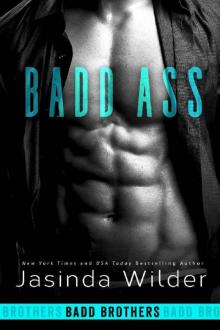 Badd Ass
Badd Ass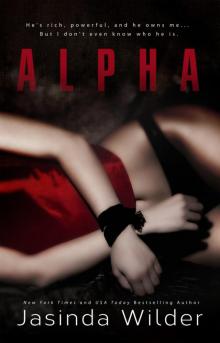 Alpha
Alpha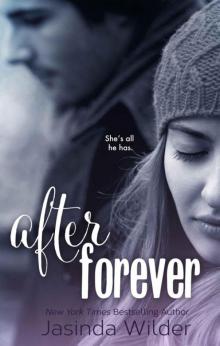 After Forever
After Forever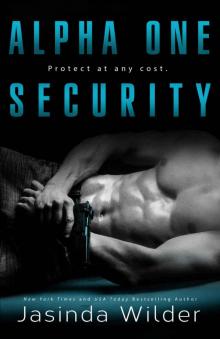 Harris
Harris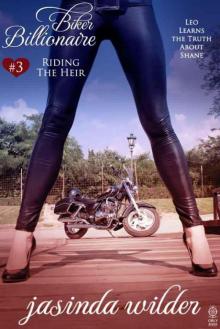 Riding the Heir
Riding the Heir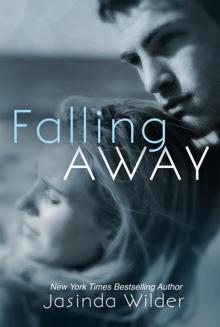 Falling Away
Falling Away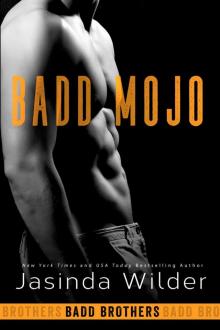 Badd Mojo
Badd Mojo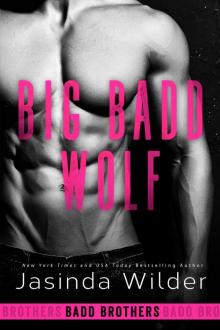 Big Badd Wolf
Big Badd Wolf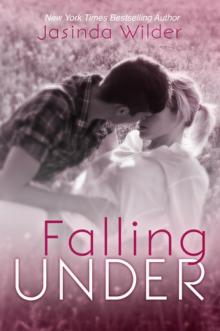 Falling Under
Falling Under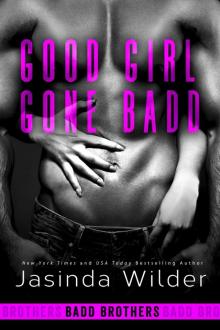 Good Girl Gone Badd
Good Girl Gone Badd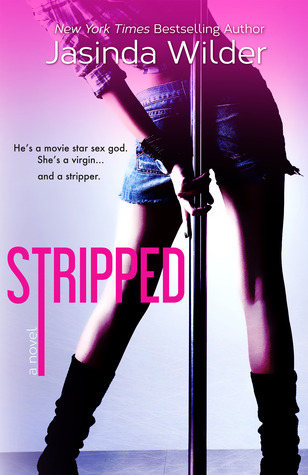 Stripped
Stripped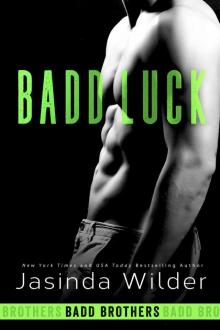 Badd Luck
Badd Luck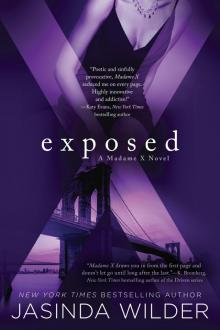 Exposed
Exposed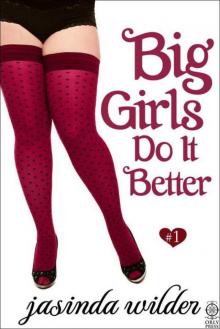 Big Girls Do It Better
Big Girls Do It Better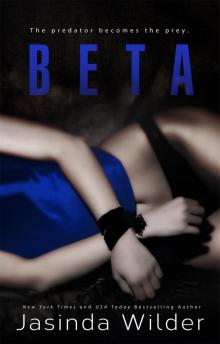 Beta
Beta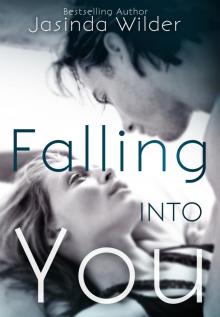 Falling into You
Falling into You Omega
Omega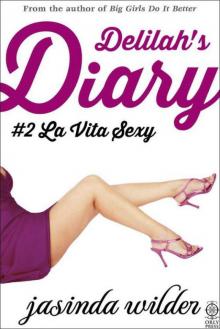 La Vita Sexy
La Vita Sexy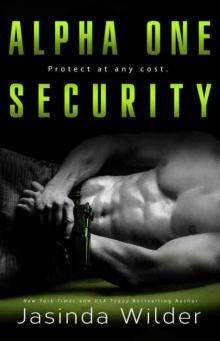 Thresh
Thresh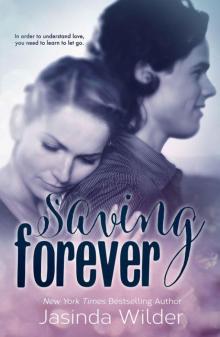 Saving Forever
Saving Forever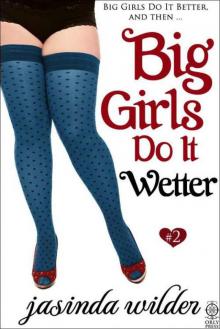 Big Girls Do It Wetter
Big Girls Do It Wetter Rock Stars Do It Dirty
Rock Stars Do It Dirty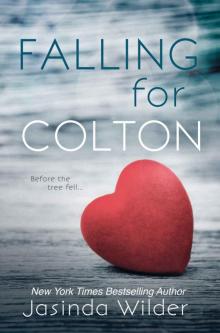 Falling for Colton
Falling for Colton Big Girls Do It on Christmas
Big Girls Do It on Christmas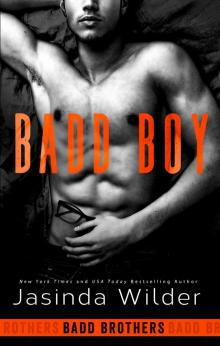 Badd Boy
Badd Boy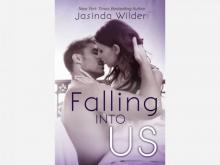 Falling into Us
Falling into Us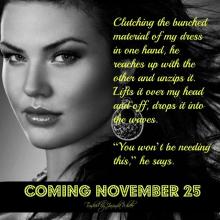 Trashed
Trashed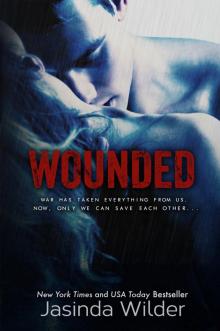 Wounded
Wounded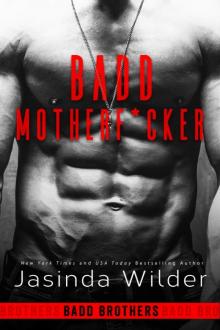 Badd Motherf*cker
Badd Motherf*cker Unbroken
Unbroken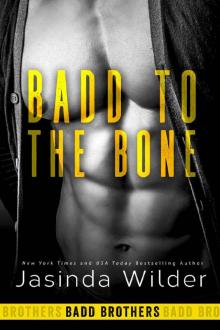 Badd to the Bone
Badd to the Bone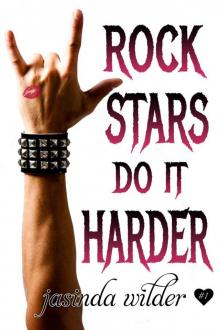 Rock Stars Do It Harder
Rock Stars Do It Harder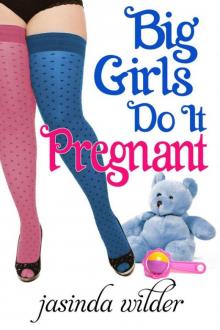 Big Girls Do It Pregnant
Big Girls Do It Pregnant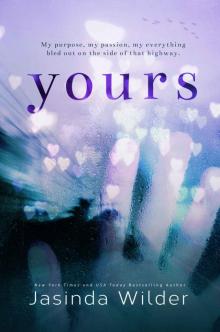 Yours
Yours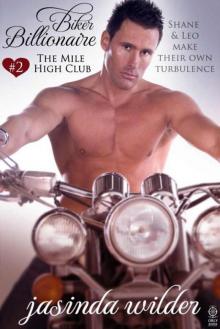 The Mile High Club
The Mile High Club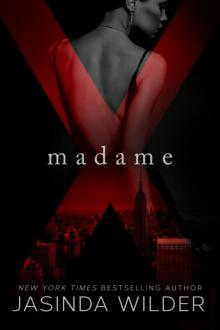 Madame X
Madame X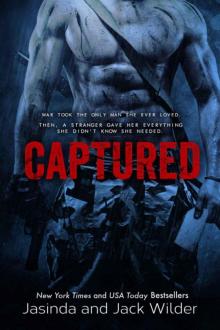 Captured
Captured Unbound
Unbound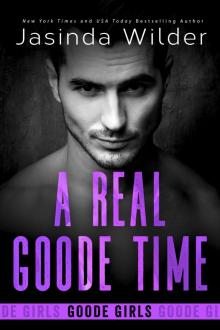 A Real Goode Time
A Real Goode Time A Wild Ride
A Wild Ride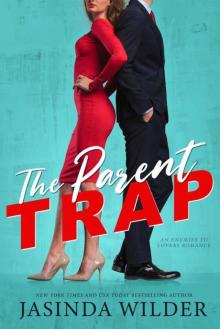 The Parent Trap
The Parent Trap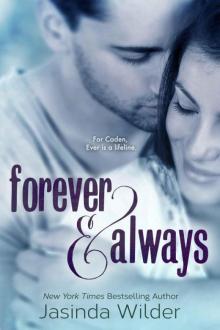 Forever & Always
Forever & Always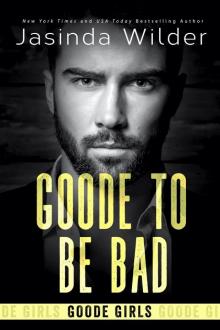 Goode To Be Bad
Goode To Be Bad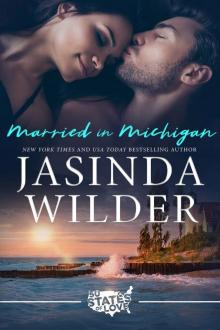 Married in Michigan
Married in Michigan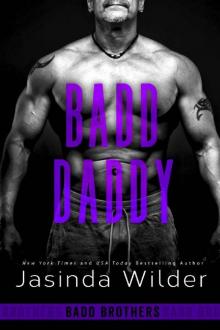 Badd Daddy (The Badd Brothers Book 12)
Badd Daddy (The Badd Brothers Book 12)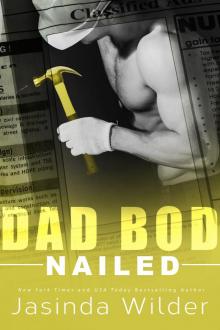 Nailed
Nailed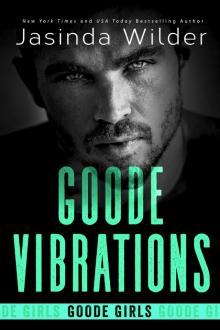 Goode Vibrations
Goode Vibrations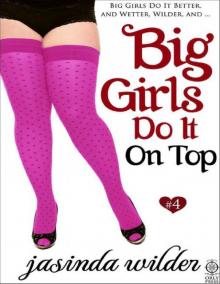 Big Girls Do It on Top
Big Girls Do It on Top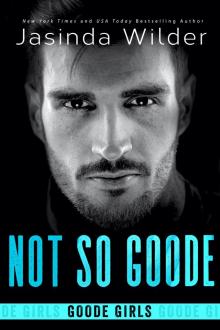 Not So Goode
Not So Goode Pregnant in Pennyslvania
Pregnant in Pennyslvania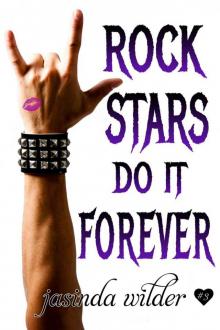 Rock Stars Do It Forever
Rock Stars Do It Forever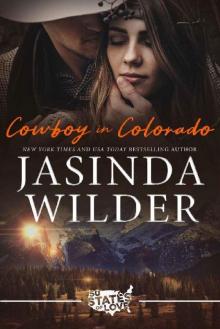 Cowboy in Colorado (Fifty States of Love)
Cowboy in Colorado (Fifty States of Love)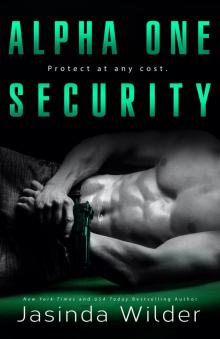 Lear: Alpha One Security: Book 5
Lear: Alpha One Security: Book 5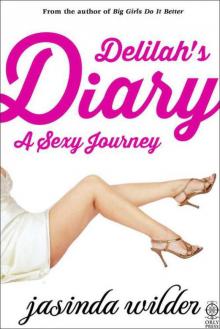 A Sexy Journey
A Sexy Journey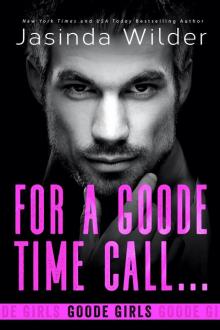 For A Goode Time Call...
For A Goode Time Call... The Naughty Boxset
The Naughty Boxset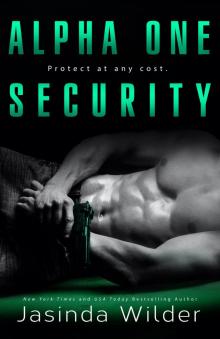 Lear
Lear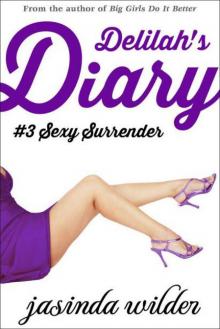 Sexy Surrender
Sexy Surrender Pregnant in Pennsylvania
Pregnant in Pennsylvania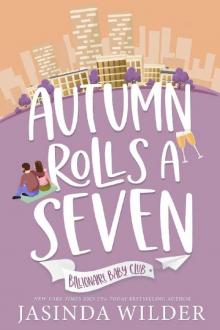 Autumn Rolls a Seven (Billionaire Baby Club Book 2)
Autumn Rolls a Seven (Billionaire Baby Club Book 2)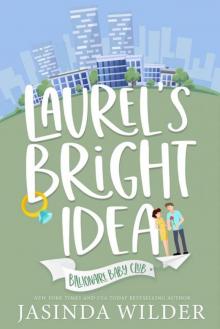 Laurel's Bright Idea (Billionaire Baby Club Book 3)
Laurel's Bright Idea (Billionaire Baby Club Book 3)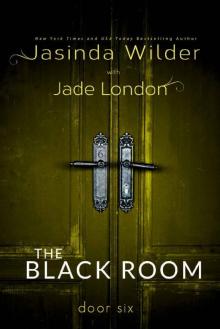 The Black Room: Door Six
The Black Room: Door Six The Long Way Home
The Long Way Home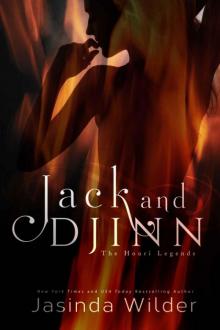 Jack and Djinn
Jack and Djinn The Nice Boxset
The Nice Boxset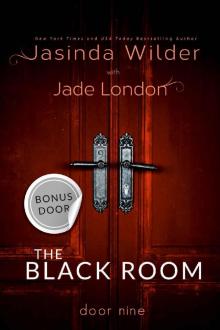 The Black Room: The Deleted Door
The Black Room: The Deleted Door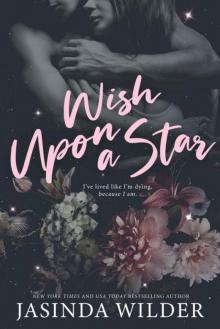 Wish Upon A Star
Wish Upon A Star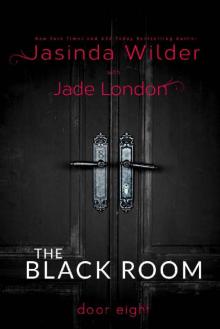 The Black Room: Door Eight
The Black Room: Door Eight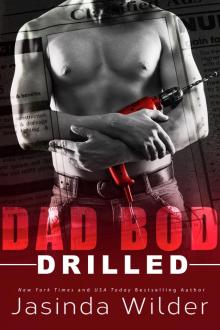 Drilled
Drilled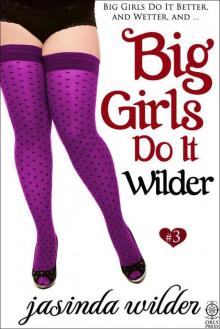 Big Girls Do It Wilder
Big Girls Do It Wilder Djinn and Tonic
Djinn and Tonic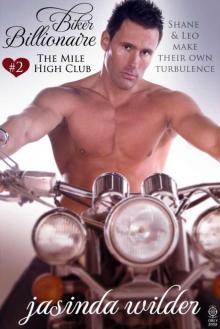 Biker Billionaire #2: The Mile High Club
Biker Billionaire #2: The Mile High Club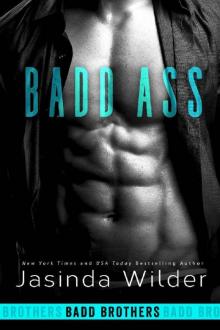 Badd Ass (Badd Brothers Book 2)
Badd Ass (Badd Brothers Book 2)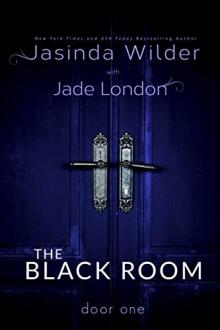 The Black Room: Door One
The Black Room: Door One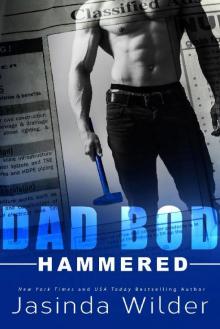 Hammered
Hammered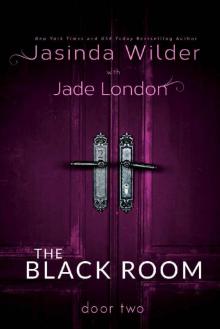 The Black Room: Door Two
The Black Room: Door Two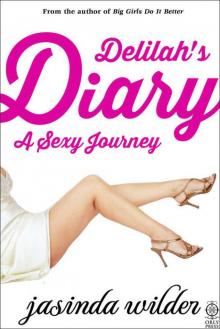 Delilah's Diary #1: A Sexy Journey
Delilah's Diary #1: A Sexy Journey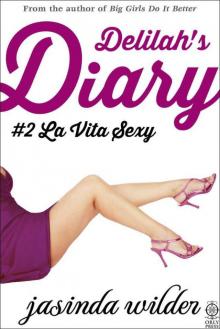 Delilah's Diary #2: La Vita Sexy
Delilah's Diary #2: La Vita Sexy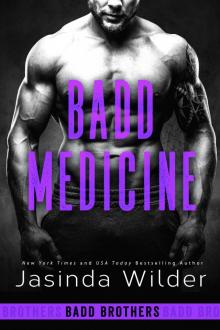 Badd Medicine
Badd Medicine Caught in the Surf
Caught in the Surf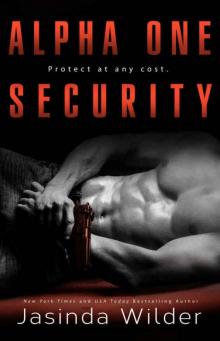 Puck: Alpha One Security Book 4
Puck: Alpha One Security Book 4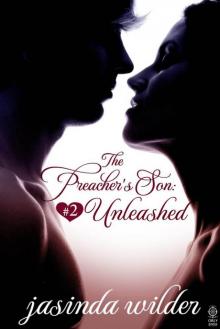 The Preacher's Son: Unleashed
The Preacher's Son: Unleashed Biker Billionaire Boxed Set
Biker Billionaire Boxed Set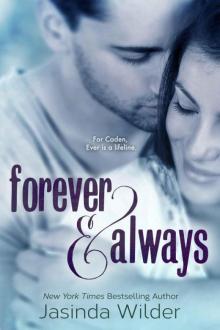 Forever & Always: The Ever Trilogy (Book 1)
Forever & Always: The Ever Trilogy (Book 1)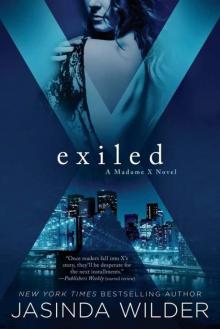 Exiled (A Madame X Novel)
Exiled (A Madame X Novel) Big Love Abroad (Big Girls Do It Book 11)
Big Love Abroad (Big Girls Do It Book 11)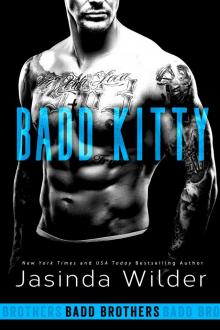 Badd Kitty
Badd Kitty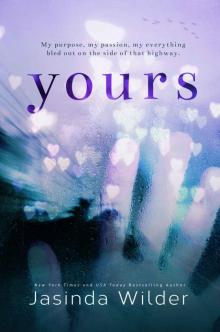 Yours: A Standalone Contemporary Romance
Yours: A Standalone Contemporary Romance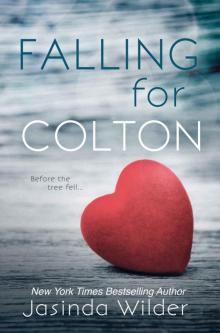 Falling for Colton (Falling #5)
Falling for Colton (Falling #5) The Preacher's Son #2: Unleashed
The Preacher's Son #2: Unleashed There's No Place Like Home (The One Series Book 3)
There's No Place Like Home (The One Series Book 3)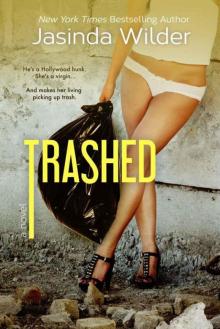 Trashed (Stripped #2)
Trashed (Stripped #2)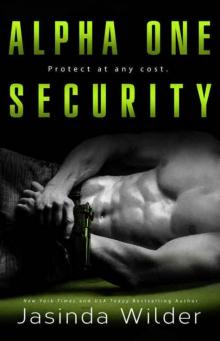 Thresh: Alpha One Security: Book 2
Thresh: Alpha One Security: Book 2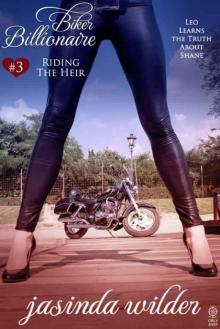 Biker Billionaire #3: Riding the Heir
Biker Billionaire #3: Riding the Heir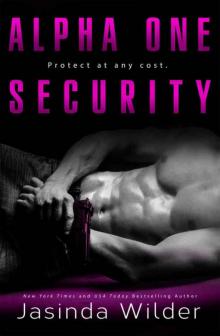 Duke: Alpha One Security: Book 3
Duke: Alpha One Security: Book 3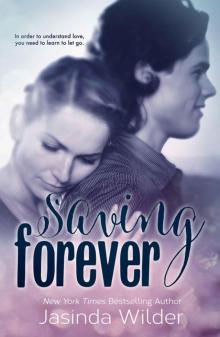 Saving Forever (The Ever Trilogy: Book 3)
Saving Forever (The Ever Trilogy: Book 3) The Preacher's Son #1: Unbound
The Preacher's Son #1: Unbound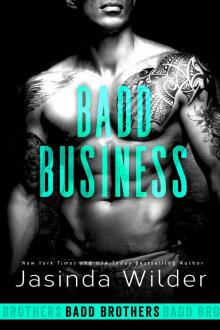 Badd Business
Badd Business Big Girls Do It Boxed Set
Big Girls Do It Boxed Set The Preacher's Son #3: Unbroken (Erotic Romance)
The Preacher's Son #3: Unbroken (Erotic Romance)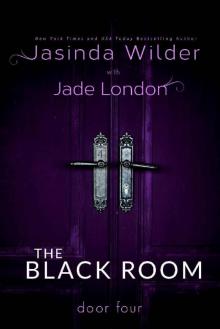 The Black Room: Door Four
The Black Room: Door Four There's No Place Like Home
There's No Place Like Home